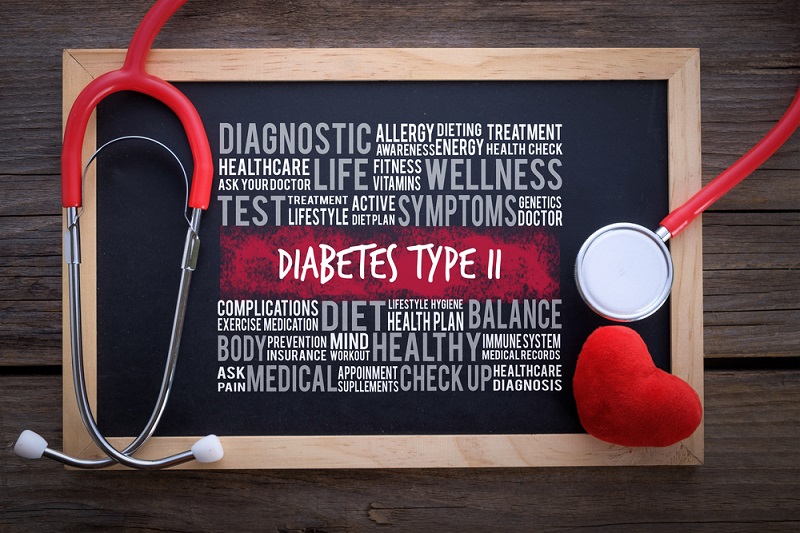- Alpha-Glucosidase Inhibitors
- Take Advantage Of Biguanides
- The Power Of Dopamine Agonist
- What Are DPP-4 Inhibitors?
- Hormones Like Glucagon (Incretin Mimetics)
- What Is Considered Type II Diabetes?
- Diabetes Type II Symptoms
- Diagnosing Type II Diabetes
- Complications Of Type II Diabetes
- Obesity And Type II Diabetes
- Primary Causes
- How To Avoid Diabetes
- Managing Your Diabetes
- How To Administer Insulin
- Decreasing Injection Pain
- Summary
The good thing about type II diabetes is that most of the medications are orally administered. This means that you can avoid those unwanted and painful injections. Unfortunately, some individuals with type II diabetes might be required to take insulin, which could result in injections. Whatever the situation is, type 2 diabetes is a serious condition that needs to be taken extremely seriously. The medications could possibly be more important than anything, so they need to be understood without any exceptions whatsoever. So, what are the different types of medications and how are they administered?
Alpha-Glucosidase Inhibitors
Starchy foods and sugar are without a doubt two of the most invasive foods when it comes to diabetes. While these foods are extremely delicious and tasty, they contain ingredients that are harmful to the body and blood sugar levels. When eating these foods they have the ability to lower your blood sugar levels, which is dangerous for any diabetic. However, if you want to continue eating these foods and keep your blood sugars within healthy levels, you can partake in acarbose and miglitlol medications. These medications will ensure that you blood sugar level stay within healthy level, while consuming these types of foods.
Take Advantage Of Biguanides
If you want to gain access to Biguanide, you should definitely check out Canadian Insulin. In fact, these medications are specifically designed with the task of decreasing the amount of sugar that your liver makes. This not only makes your body more sensitive to insulin levels, but it helps your muscles absorb more glucose. While there are a variety of different Biguanides medications available on the market, some of the most common are metformin, Glucophage, and Riomet.
Also, keep in mind that these medications can be used in combination with other type II diabetes medications.
The Power Of Dopamine Agonist
Dopamine Agonist like Bromocriptine are extremely powerful agonists that are capable of treating diabetes in a variety of different ways. Unfortunately, as of right now scientists and doctors cannot pinpoints exactly how these medications work, but some have suggested that they treat type II diabetes by modifying the rhythms in the body and prevent insulin resistance.
What Are DPP-4 Inhibitors?
Unfortunately, type II diabetes can show up in some individuals, because their bodies just don’t have the power to produce enough insulin. If this is case with your body, you might be able to benefit from DPP-4 Inhibitors. These medications are specifically designed to reduce the blood sugar level in your body without causing you to go into a hypoglycemia state. In addition to this, these drugs can inhibit the pancreas to create more insulin.
Hormones Like Glucagon (Incretin Mimetics)
It is no big secret that hormones are imperative to the natural and healthy reproductions of the body. In fact, without the right hormones you might lose your hair and not be able produce enough semen to consume a child. Underproduction of these hormones could even result is the development of diabetes. This is where medications like Glucagon can come in extremely handy. These medications are extremely similar to hormones and they activate the natural production of incretin in body.
These hormones not only increase the growth of B-cells in the body, but they could increase the amount of insulin that the body produces over time. Along with this, they decrease the appetite and the amount of glucagon that your body uses. These medications are extremely helpful when it comes to dealing with type II diabetes and might be essential for certain individuals suffering for this infectious disease.
What Is Considered Type II Diabetes?
Unlike Type I diabetes, Type II diabetes means the body does not use or make insulin well. In Type I diabetes, the body does not make insulin. People with Type II and Type I diabetes will experience high blood glucose, if they do not monitor their diet and take their medications as prescribed by their primary care physician.
Out of 30.3 million cases of diabetes in the United States, 90 to 95 percent of these cases are relevant to Type I diabetes. Anyone who is overweight and physically inactive is at a risk of developing Type I diabetes at some point. People with high blood pressure and have a family history of diabetes are also at risk.
Diabetes Type II Symptoms
Diabetes Type II is a growing concern in America and some other countries. In the past, the disease was mostly a problem for older adults. However, over the last five years it has become a problem for younger adults and children. The most common causes of diabetes are obesity and sedentary lifestyle. The most common signs and symptoms of Type II diabetes include:
- Increased thirst
- Frequent urination
- Weight loss
- Increased hunger
- Blurred vision
- Frequent infections
- Slow healing wounds or sores
- Darkened, velvety skin (most around the neck and in the armpits)
If you begin to experience any of these symptoms, it is crucial to seek the advice of a physician. You will be required to undergo a few tests to better help your primary care physician diagnose your condition.
Diagnosing Type II Diabetes
There are several ways to diagnose Type II diabetes, Type I diabetes, gestational diabetes and pre-diabetes. However, all of these require a simple blood test. It is crucial for people exhibiting symptoms similar to diabetes to not attempt to diagnose their condition. Of course, you can purchase a glucose meter over-the-counter at your local pharmacy or retail store, but this is not the correct way to diagnose diabetes.
Instead, you should schedule an appointment with your physician who will decide on the best action to take. You will either be scheduled for an A1C or a random plasma glucose (RPG) test. Both of these tests are very reliable and accurate.
Another popular diabetes test is called fasting plasma glucose or FPG. This particular test requires the patient to fast for at least eight hours prior to the blood withdrawal. Patients are not allowed to consume anything except for a few sips of water.
Complications Of Type II Diabetes
The complications of uncontrolled blood glucose include kidney disease, vision problems, heart disease, stroke and dental disease, as well as nerve damage and foot problems. The key to reducing the risk of these complications is blood glucose monitoring, a healthy diet and regular exercise.
Obesity And Type II Diabetes
As the number of reported obesity cases continue rise in the United States, so does the Type II diabetes cases. As one of the common risk factors of Type 2 diabetes, obesity is the greatest threat to America’s future, according to CBN. People who are obese are not only at risk of Type II diabetes, but also heart disease, Alzheimer’s disease, certain types of cancer, arthritis and hypertension (high blood pressure.)
The obesity epidemic in the United States is a problem that state and local governments are addressing. Just recently several states imposed a tax on sugary drinks, such as carbonated sodas, energy drinks and sports drinks. However, it is unclear whether these taxes will deter consumers from buying sugary drinks.
Obesity is costing the American society billions of dollars each year. And, this number continues to increase on a daily basis. Some analysts are considered that the financial burden will bankrupt the society.
Primary Causes
When it comes down to it, there are many different causes of type 2 diabetes. If you have family members who have this disease, there will be a higher risk that you’re going to develop it too. It is also possible to develop this problem, because you’re following a poor diet and do not exercise enough. Obesity is the leading cause. If you’ve gained too much weight, you need to take control of your life immediately. If you do not, there is a good chance that you’re going to develop this disease.
Type 1 diabetes is not caused by a sedentary lifestyle. Type 2 is. With this in mind, you should always be proactive about eating healthy and exercising properly. This will make a huge difference in the long run.
How To Avoid Diabetes
It is entirely possible to avoid developing type 2 diabetes. You can do so by changing your lifestyle immensely. First and foremost, you need to gain a better understand about the connection between diet and diabetes. Then, you’re going to need to change your diet completely. You’ll need to give up many of those sugary drinks. You’ll also want to begin eating more fruits and vegetables. While you’re at it, you should begin exercising more regularly.
By adding these simple tasks to your life, you may be able to avoid getting diabetes in the first place. Nevertheless, you should still understand that your risks for getting diabetes is going to increase significantly as you get older.
Managing Your Diabetes
If you find out that you’ve developed type 2 diabetes, you’re going to need to change your life significantly. You’ll need to change your diet, your lifestyle and begin taking diabetes medications. First and foremost, you should make sure that you drink plenty of water. Avoid too many sodas, because they’re crammed full of sugar. While you’re at it, you’re going to need to learn more about your insulin. Find out specifically how much you need. You may need to adjust your insulin before exercising.
It is also pertinent to learn how to check your blood sugar levels. Keeping an eye on your blood sugar levels will allow you to take action should anything go wrong. You also need to learn how to handle low blood sugar levels. Keeping a snack nearby can help. You should also consider buying glucose gel or tabs. By being proactive, you will be able to avoid problems should your blood sugar levels spiral out of control.
How To Administer Insulin
In all likelihood, you’re going to be required to give yourself insulin by using a syringe. These are several different sizes. To ensure that you get the right dosage, it is pertinent to get the right size. Your doctor should go over this with you. It is possible to inject the insulin into a number of different places. For instance, it can be injected into the buttocks, hip, upper arm, abdomen, or even the thigh. Insulin tends to work much quicker when it is injected into the abdomen. This is something to remember for emergencies.

It is a good idea to choose a different area each time. Before injecting the insulin, you will want to go ahead and clean the skin near the injection site. Then, you should grab a fold of the skin. Pinch the skin gently between your finger and thumb. Now, you should insert the needle into the skin and press down the plunger. After a few seconds, you should pull out the needle.
Be sure to apply pressure to the injection site for a few seconds. Never rub it! After that, you’ll want to throw away the used syringe properly. This will ensure that everyone in your household is kept safe and sound.
Decreasing Injection Pain
There are plenty of things that you can do to decrease the pain of the injection. First and foremost, you should make sure that you inject the insulin at room temperature. Make sure that the syringe doesn’t have any air bubbles. When cleaning the skin with an alcohol pad, you need to make sure that the skin has time to dry before injecting the insulin. Also, be sure that your muscles are relaxed at all times. Do this and you will be able to inject the insulin without too much pain and suffering.
Summary
At the end of the day, type 2 diabetes can be very problematic for patients. Nevertheless, it doesn’t have to be life threatening. As long as you take steps to keep your disease in check, you will actually be able to live a completely normal life despite being a diabetic. In fact, you may eventually be able to overcome the problem with an exercise routine and a good diet. If you do not, you’re likely going to need to take diabetes medications for the rest of your life.








